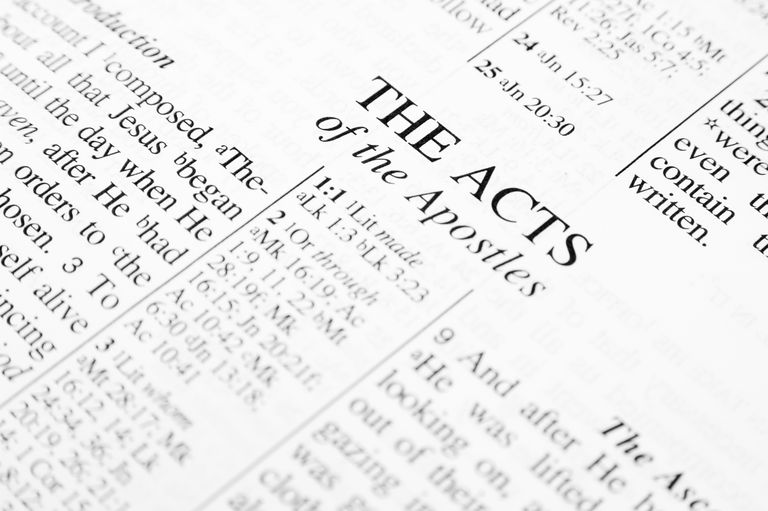Thy Kingdom Come Is about change: the great change that occurs in a person’s life when they accept Jesus as Lord and welcome him as Saviour, Master and Friend. Scripture assures us that at that moment they become part of the Kingdom of God’s beloved Son. “If anyone is in Christ, he is a new creation” writes St Paul (2 Corinthians 5:17). So, we pray each year between the Ascension and Pentecost that families, friends, communities and countries would come to know the saving love of God in Jesus Christ. When we do that, we are following the example of the disciples in Acts 1:14 who, in a revolutionary ground-breaking manner united in constant, heartfelt world-changing prayer.
The prayer led to practical planning. The group, in a totally culturally-relevant way, appointed a replacement for Judas Iscariot and waited for the coming of the Holy Spirit who will drive them out of their comfort zone into the city whose authorities had condemned Christ to declare the Good News of God’s transforming love in the death and resurrection of his Son.
The Change of Kingdom is not the end, it’s the beginning of lifelong, life-enhancing transformation.
At the launch of Thy Kingdom Come the Archbishop of Canterbury, Justin Welby, noted the huge issues we are facing including Covid-19, climate change, poverty and selfish apathy. All those things bring into sharp focus the world's need of Jesus and the call of God on us to pray for transformation and, as Christ calls us into his Kingdom, to become agents of that transformation in the world he loves.
The prayer of Acts 1:14, broke down cultural barriers, prepared for Pentecost, and gave birth to worldwide evangelism. Against the background of this pandemic, God calls all those who have received his saving love for themselves to be channels of his Kingdom in the world; men and women who demonstrate and embody God’s transforming love to bring real change to the lives of those in greatest need. In his commentary on Acts, John Stott put it like this:
“It is part of the responsibility of Spirit-filled believers to alleviate need and abolish destitution in the new community of Jesus.”
As we continue to read Luke’s story of the first Christians, those whom their enemies soon describes as the ones who had “Turned the world upside-down” (Acts 17:6) we see that preaching the Gospel wasn’t done in a vacuum. Peter and John notice the lame beggar at the gate of the temple and heal him in Jesus’ name. Poverty in the church was noticed and assuaged by sacrificial sharing and very careful organisation. When those who spoke only Greek were being missed out of the food distribution in Acts 6 the Apostles thought it important enough that Stephen and six others are appointed to sort it out and ensure transparency and fairness.
In fact, when Peter and John have been arrested and threatened by the Sanhedrin in chapter 4 they respond with a prayer for more opportunities to preach and to show the power of God in transformed lives touched by the Good News and power of God.
The Archbishop I always think of as the founder of Anglicanism, Thomas Cranmer, who was the agent of the reformation of the Church of England and ended up giving his life for the Gospel of Christ showed the link between conversion and transformation in a letter he wrote to Henry VIII in 1538. He said this:
“If the profession of our faith of the remission of our own sins enter within us into the deepness of our hearts, then it must kindle a warm fire of love in our hearts towards God, and towards all other for the love of God - a fervent mind to seek and procure God’s honour, will, and pleasure in all things - a good will and mind to help every man and to do good unto them, so far as our might, wisdom, learning, counsel, health, strength, and all other gifts which we have received of God will extend.”*
Prayer and Care go together in Thy Kingdom Come because they go together in the Scriptures. They go together in the story of the Acts of the Apostles which, of course, continues the story of Jesus who when faced with a hungry crowd told his disciples to give them something to eat.
Whether it is influencing those who shape the global economy so that the poor do not pay the price of the pandemic, or checking on the elderly, the lonely, the sick and the exhausted, we are called to notice the needs with the eyes of Jesus; to love the needy with the heart of Jesus and show practical care with the hands of Jesus. We are called to pray that people are changed by Jesus and become those who in their turn help turn the world the right way up.
The Very Revd Robert Key,
Anglican Communion Lead,
Thy Kingdom Come
*Quoted by John Ashley Null in GAFCON’s ‘Lift up your heart.’
